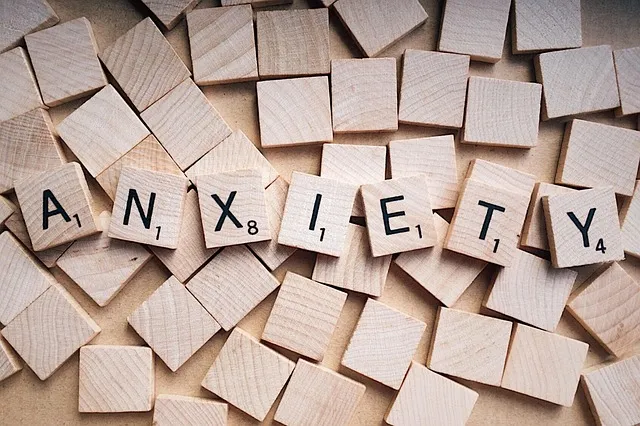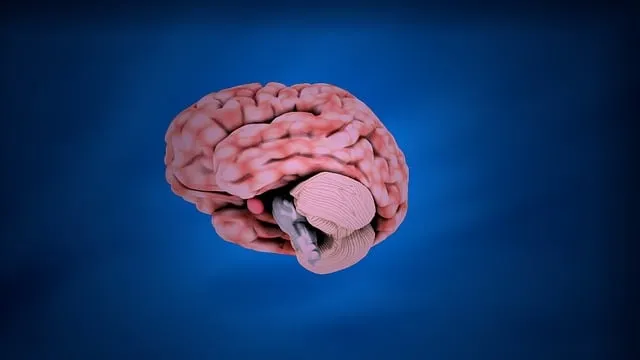Inpatient mental health facilities, like those managed by Kaiser in Boulder, play a critical role in severe crises. The Recovery, Functioning, and Motivation (RFM) model enhances patient care by focusing on individual recovery journeys, daily functioning, and motivation for change. Through resilience-building exercises and coping skills development programs centered around RFM, these facilities significantly improve emotional regulation and self-esteem. Tailored to unique needs, these initiatives foster control and empower individuals to manage mental health challenges, supporting both short-term recovery and lifelong well-being. Kaiser's holistic approach integrating CBT and mindfulness practices has proven effective in Boulder, aiming to reduce stigma through individualized care, including personalized therapy, peer support, and mental wellness journaling. Implementing resilience-building exercises can revolutionize mental health care, equipping patients with tools for long-term emotional well-being. The RFM model, when correctly implemented, offers promising outcomes by promoting a strengths-based perspective and increasing motivation, with future directions involving expanding community outreach and education centered around RFM principles.
“The integration of Resilience-based Facilitation (RFM) into mental health care, particularly within inpatient settings, has emerged as a transformative approach. This article explores the potential impact of RFM on patient outcomes in the context of Kaiser’s innovative model. We delve into the strategies and benefits of implementing resilience-building exercises, highlighting their effectiveness in Boulder’s inpatient mental health facilities. By examining both the challenges and future directions, we aim to provide valuable insights into enhancing mental healthcare through RFM.”
- Understanding RFM and Its Impact on Mental Health Care in Inpatient Settings
- The Kaiser Model: A Closer Look at an Innovative Approach
- Implementing Resilience-Building Exercises: Strategies for Effective Therapy
- Benefits, Challenges, and Future Directions: Evaluating the Effectiveness of RFM in Boulder's Inpatient Mental Health Facilities
Understanding RFM and Its Impact on Mental Health Care in Inpatient Settings

Inpatient mental health care facilities, like those managed by Kaiser in Boulder, play a pivotal role in providing intensive support and treatment for individuals experiencing severe mental health crises. One effective approach that has gained prominence in recent years is using the RFM (Recovery, Functioning, and Motivation) model to enhance patient care. This framework focuses on understanding an individual’s recovery journey, their ability to function in daily life, and their level of motivation for change.
By implementing resilience-building exercises and coping skills development programs centered around RFM, inpatient facilities can significantly contribute to patients’ emotional regulation and self-esteem improvement. These exercises are tailored to address each patient’s unique needs, fostering a sense of control and empowering them to navigate their mental health challenges more effectively. Such initiatives not only support short-term recovery but also equip individuals with lifelong coping mechanisms, enhancing their overall well-being and resilience.
The Kaiser Model: A Closer Look at an Innovative Approach

The Kaiser Model offers an innovative approach to resilience building exercises and has been recognized for its effective treatment of mental health issues in inpatient settings. This model, developed by Kaiser Permanente, focuses on a holistic view of mental wellness, addressing not just symptoms but also the underlying causes of mental illness. By integrating various therapeutic techniques, such as Cognitive Behavioral Therapy (CBT) and Mindfulness-based practices, the program aims to empower individuals with coping strategies that enhance their overall mental resilience.
One unique aspect of the Kaiser Model is its emphasis on individualized care. The approach recognizes that every person’s experience with mental illness is distinct, and treatment should reflect this. This customization includes personalized therapy sessions, peer support groups, and even mental wellness journaling exercises guided by professionals. Such tailored interventions not only help in managing symptoms but also foster a sense of self-awareness and confidence-boosting strategies, contributing to the overall goal of reducing the stigma associated with mental illness.
Implementing Resilience-Building Exercises: Strategies for Effective Therapy

Implementing Resilience-Building Exercises is a strategic approach to enhance therapy outcomes, particularly for institutions like Kaiser offering inpatient mental health services in Boulder. These exercises are designed to empower individuals with effective coping skills and emotional well-being promotion techniques, addressing a crucial aspect of mental wellness coaching programs development. By integrating such activities into treatment plans, healthcare providers can facilitate a holistic transformation in patients’ lives.
Resilience-focused therapy sessions can be tailored to cater to diverse patient needs. Activities may include mindfulness practices, cognitive reframing exercises, and stress management techniques, all of which contribute to coping skills development. These strategies not only help individuals navigate challenging situations but also foster a sense of personal growth and resilience. When implemented correctly, such exercises have the potential to revolutionize mental health care, ensuring patients leave therapy with practical tools for maintaining their emotional well-being in the long term.
Benefits, Challenges, and Future Directions: Evaluating the Effectiveness of RFM in Boulder's Inpatient Mental Health Facilities

Implementing the RFM (Recovery-Focused Methodology) approach in Boulder’s inpatient mental health facilities offers a promising path toward enhanced patient resilience and improved outcomes, especially considering Kaiser’s presence in this region with its dedicated inpatient care services. The benefits are multifaceted; RFM promotes a strengths-based perspective, empowering individuals to develop coping strategies tailored to their unique experiences. This methodology fosters a sense of ownership over one’s recovery journey, leading to increased motivation and engagement in treatment.
However, challenges exist when introducing such transformative practices within established healthcare systems. Staff training and buy-in are crucial; ensuring professionals understand the Mind Over Matter Principles requires ongoing education and support. Furthermore, integrating RFM into existing clinical workflows demands careful planning and adaptation to accommodate this client-centered approach. Future directions include expanding community outreach programs that bridge the gap between inpatient care and outpatient support, utilizing mental health education programs designed around RFM principles to foster resilience in diverse populations.
The implementation of Resilience-Building Exercises (RFM) in inpatient mental health facilities, such as those found in Boulder, presents a promising approach to enhancing patient care. By drawing on models like the Kaiser Method, healthcare professionals can offer effective therapy strategies that target resilience. The benefits of RFM are evident, showing potential improvements in mental health outcomes and patient well-being. However, challenges exist, including resource allocation and individualization. Future research should continue to explore these exercises’ long-term effects, particularly within the unique context of Boulder’s inpatient facilities, to ensure optimal patient recovery and resilience.






